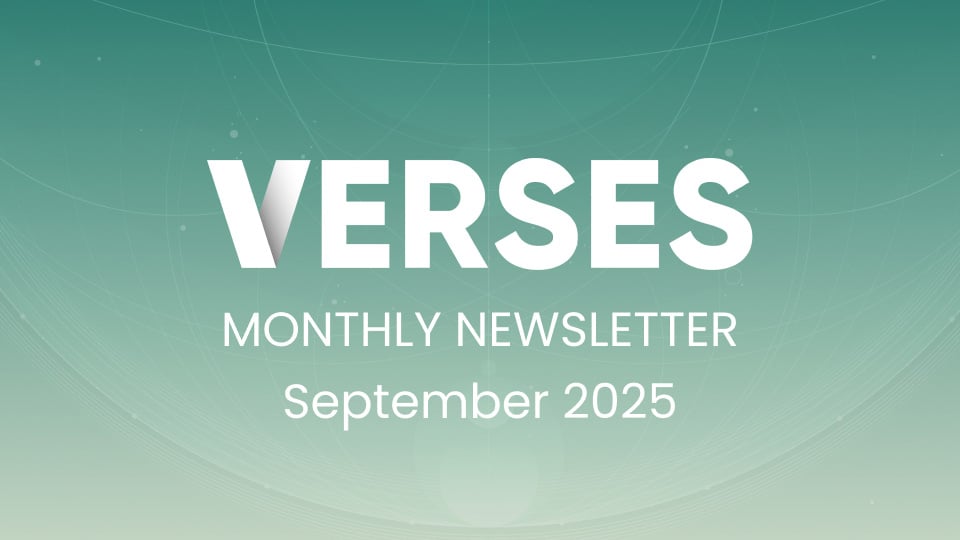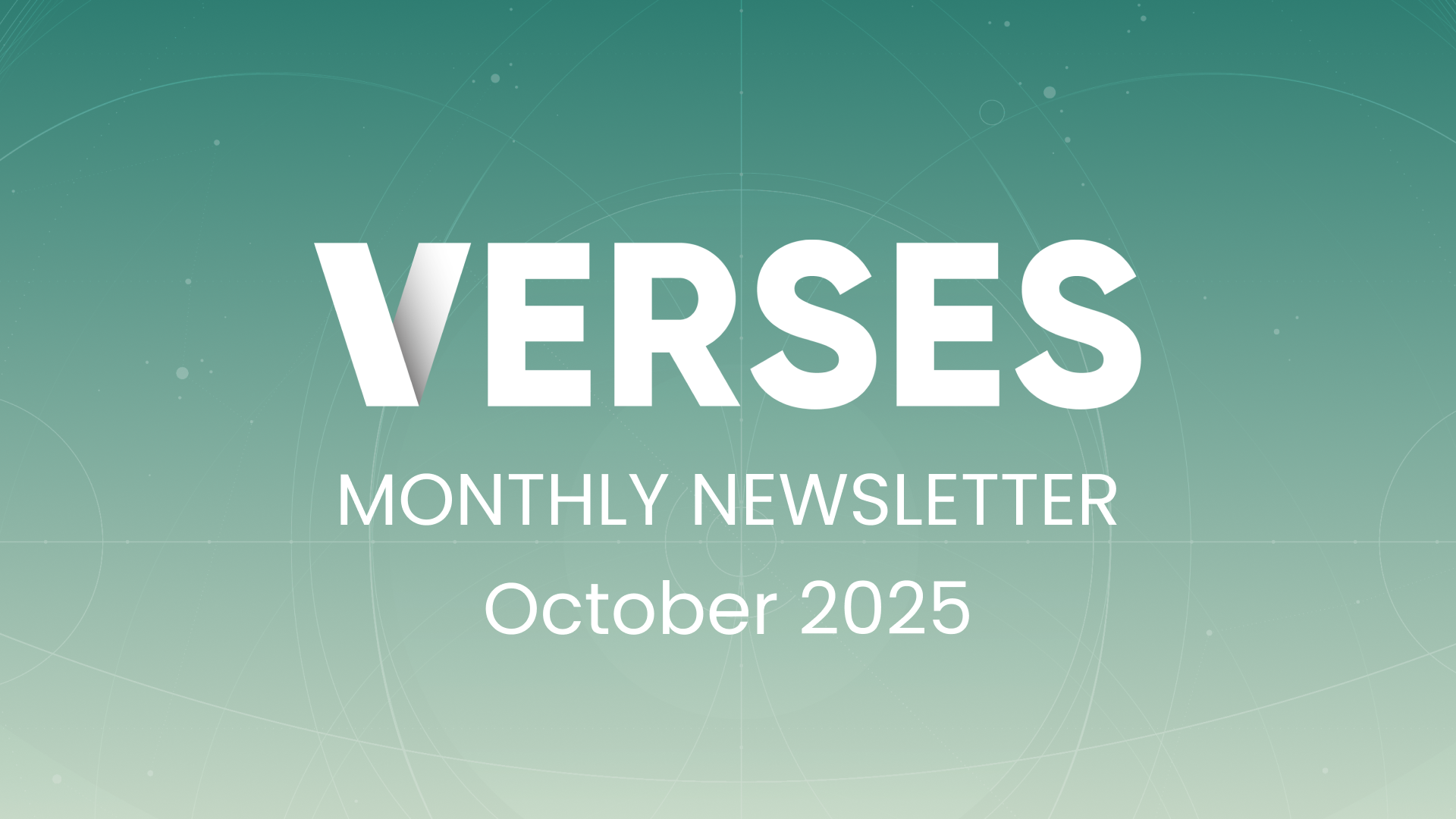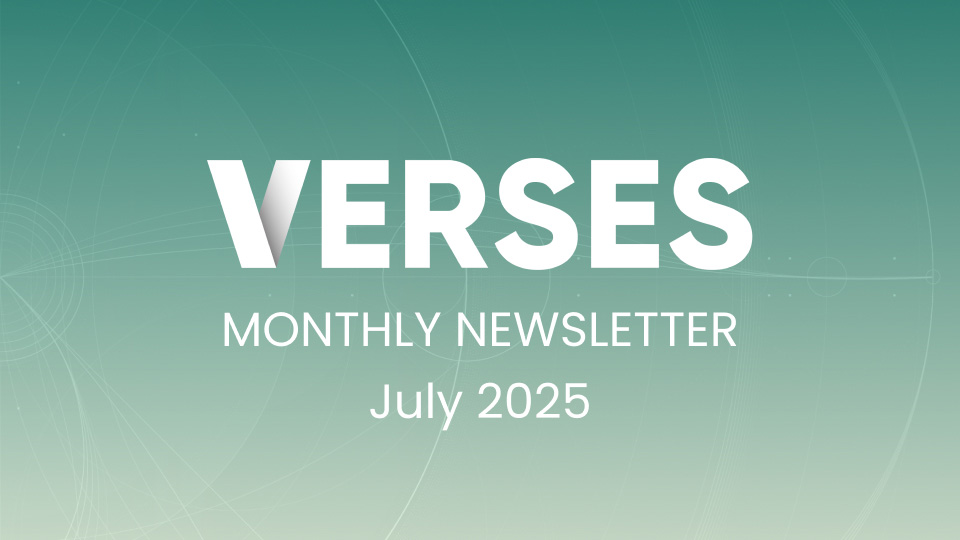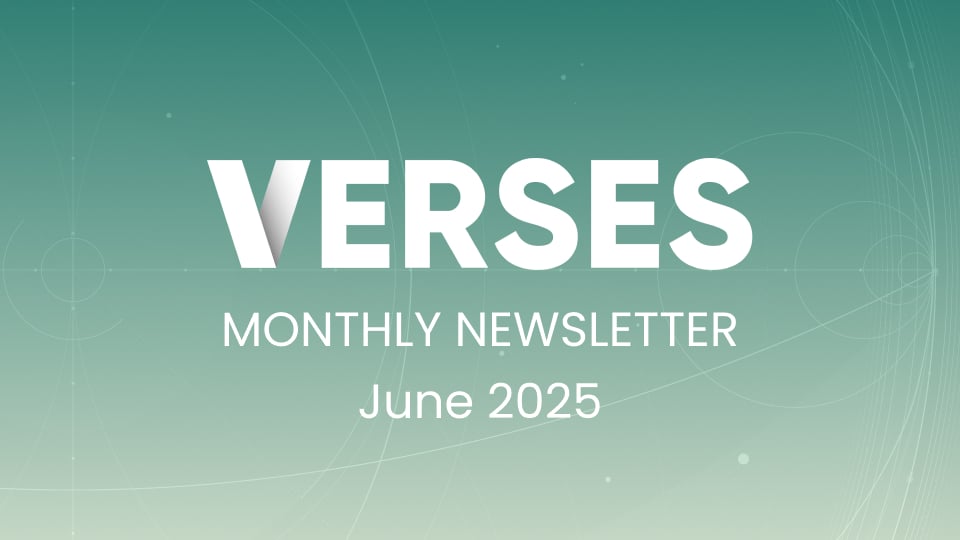
VERSES® is now trading on OTCQB:VRSSF and CBOE:VERS
FROM THE CEO
The tide continues to turn.
Months of hype are giving way to reality, and leading voices are now asking the hard questions we’ve been focused on all along.
In the New York Times this month, Gary Marcus calls out the need to rethink current approaches to AI, and highlights VERSES for taking steps in that direction.
He argues that scaling alone won’t deliver true intelligence. He cited VERSES work on physical and perceptual understanding as “one step in this direction.”
Our work at VERSES is gaining attention because it directly addresses the problems holding AI back today—systems that can’t adapt, can’t scale, and quickly grow obsolete. Recognition is coming from analysts, researchers, and enterprises alike, all pointing to the same conclusion: the old path has reached its limits.
As organizations become more disillusioned with unreliable AI systems, they’re demanding reliable, sustainable, trustworthy AI.
This is what VERSES has built from the ground up.
Gabriel René
Founder and CEO, VERSES
IN THE NEWS

Gary Marcus wrote in the New York Times about the need to rethink AI.
His analysis of GPT-5’s underwhelming performance and call for alternative approaches validates what we’ve long argued: scaling alone won’t deliver true intelligence. In the article, Marcus cites VERSES work on physical and perceptual understanding as “one step in this direction” toward building agentic systems with core knowledge of the world.
Gartner officially moved generative AI into the "trough of disillusionment," acknowledging what enterprises already know—these systems aren’t delivering the returns they promised. At the same time:

VERSES was named a Sample Vendor in Gartner’s 2025 Hype Cycle for Artificial Intelligence with listings for Spatial Computing, Active Inference, and as a Representative Provider in World Models research. This sample vendor recognition positions VERSES alongside Google, Meta, NVIDIA, and OpenAI as a key player in the next wave of AI—technology designed to empower agents with imagination and adaptability.

Recognition of VERSES is also coming from the research community. AI researcher Devansh recently wrote extensively about our AXIOM model, highlighting how our approach achieves results 5,000× more cost-effective than OpenAI’s o1. He called it “a fully realized alternative: a cognitive architecture that builds understanding, infers cause, and rewires itself in response to the unknown.”
Beyond analysts and researchers, professionals in the field are starting to publicly champion alternative approaches. On LinkedIn, fintech and AI solution architect Denis O has pointed out the failures of LLM- and RL-driven approaches, describing them as “frozen in amber” and incapable of adapting to the real world. In contrast, he points to VERSES Active Inference breakthroughs—outperforming DeepMind and Meta on reasoning and robotics benchmarks—as proof that the paradigm has already shifted.
His posts frame VERSES architecture as the blueprint for a new era of AI—one built on adaptation, coherence, and real-time coordination rather than brute-force training loops. This kind of evangelism from practitioners underscores that the movement away from deep learning dogma is not just academic, but is resonating with those building and deploying AI systems today.
KARL’S CORNER

This month, Karl is doing something radical: taking a vacation.
Given that our resident genius has been clocking twelve-hour days living on the cutting edge of neuroscience and machine intelligence, this is less "time off" and more "basic human maintenance."
Before leaving to recharge his batteries, Karl dropped by the Flow Research Collective podcast and delivered a fascinating origin story detailing the mathematics behind Active Inference—the Free Energy Principle.
He and his team spent a decade developing the best way to make sense of early brain mapping data. Then Geoffrey Hinton's neighboring lab work sparked a realization that the same principles of physics and mathematics could explain how brains actually process information. Today, Active Inference serves as the mathematical foundation for VERSES approach to machine intelligence, powering Genius™ and our vision of adaptive intelligence.
Enjoy the vacation, Karl. The rest of us will try not to revolutionize neuroscience while you're gone.
LATEST NEWS

VERSES Unveils Robotics Architecture that Works Without Pre-Training
Our multi-agent robotics model has been shown to outperform current methods on Meta’s Habitat Benchmark without pre-training.
VERSES Receives Patent for Specifying Domain Models with Active Inference Agents
The US Patent and Trademark office has given VERSES a patent entitled, “A Method and System for Specifying an Active Inference based agent using Natural Language”. This presents a novel approach for designing domain models that is designed to enable software agents to generate predictions and carry out domain-specific tasks.
VERSES Sponsors Leading Conference on Active Inference
VERSES is sponsoring the 6th annual International Workshop on Active Inference (“IWAI”), an annual in-person gathering that brings together leading researchers, practitioners, and students working on Active Inference and related fields.

In our last newsletter we outlined the $50T Physical AI opportunity and why VERSES is positioned to compete for a share of this massive market.
This month, let’s look at the breakthroughs that laid our foundation—and some of the benchmarking wins where we’ve bested Google, Meta, OpenAI, DeepSeek, and others on specific tasks—to show how these pieces fit together to enable operation under real-world conditions.

Genius Think (Adaptation)
Through our R&D pipeline, we advanced AXIOM into a reasoning engine that adapts in real time. An iIndependent audits confirmed AXIOM outperformed Google DeepMind’s DreamerV3 on Gameworld-10k, achieving higher scores with fewer steps and far greater efficiency. This shows how a digital “brain” enables adaptive intelligence, a prerequisite for real-world deployment.

Genius Sense (Perception)
Our applied research in perception produced Variational Bayes Gaussian Splatting, a system that ‘sees’ the world more like we do. This breakthrough demonstrates how our technology can learn continuously without retraining, updating 2D and 3D maps in real time, and preventing the “forgetting” that causes traditional systems to lose accuracy–all without retraining or replay buffers.

Genius Share (Coordination)
Our applied research also extends to multi-agent coordination at scale. In a live energy-management exhibit, Genius Share agents reduced building energy costs and emissions through autonomous collaboration, scaling from single rooms to entire districts. The same architecture also lets robots share skills—what one learns can be distributed instantly.

Genius Act (Action)
Bringing Think, Sense, Share, and the Spatial Web together, our robotics system delivered a decisive win on Habitat 2.0 simulation—the gold-standard benchmark for embodied AI—without massive training cycles. This benchmark win demonstrates our breakthrough technologies working as one: reasoning, perception, and coordination aligned to perform in real-world scenarios.

Spatial Web (Network)
To unify these capabilities, we contributed to the recent IEEE standardization of HSML, HSTP, and the UDG. This provides the governance, policy, and security layer enterprises need, showing our pipeline reaches beyond technical breakthroughs into usable, interoperable standards.
Putting it together
These advances showcase the strength of our pipeline from research to product. By turning applied research into deployable systems, VERSES is delivering the brain, senses, body, and network of adaptive intelligence. With benchmark wins and live deployments, we have strong validation toward product-market fit for Physical Intelligence—adaptive at the edge, reliable in real-world conditions, and secure at scale.
FORWARD LOOKING DISCLAIMER
Certain information included in this newsletter contains statements that are forward-looking, such as statements related to our flagship product, Genius, the commercial application of Genius and our research developments, as well as developments in the AI sector. Such forward looking information involves important risks and uncertainties that could significantly affect anticipated results in the future and accordingly, such results may differ materially from those expressed in any forward looking statements made by or on behalf of VERSES.
 VERSES
VERSES


